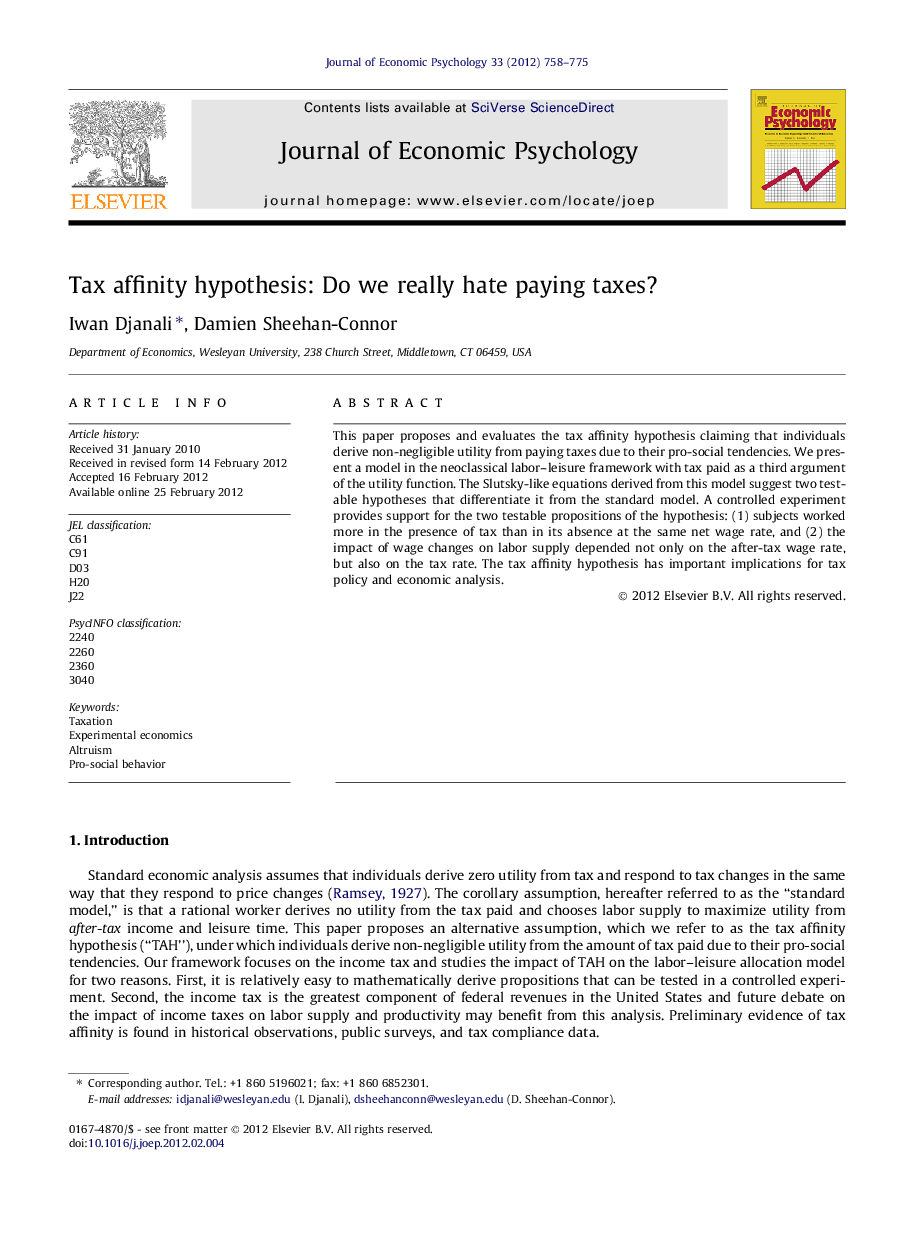| Article ID | Journal | Published Year | Pages | File Type |
|---|---|---|---|---|
| 885143 | Journal of Economic Psychology | 2012 | 18 Pages |
This paper proposes and evaluates the tax affinity hypothesis claiming that individuals derive non-negligible utility from paying taxes due to their pro-social tendencies. We present a model in the neoclassical labor–leisure framework with tax paid as a third argument of the utility function. The Slutsky-like equations derived from this model suggest two testable hypotheses that differentiate it from the standard model. A controlled experiment provides support for the two testable propositions of the hypothesis: (1) subjects worked more in the presence of tax than in its absence at the same net wage rate, and (2) the impact of wage changes on labor supply depended not only on the after-tax wage rate, but also on the tax rate. The tax affinity hypothesis has important implications for tax policy and economic analysis.
► We propose tax affinity hypothesis that individuals derive utility from paying tax. ► We derived Slutsky-like equations and tested propositions in controlled experiment. ► Subjects worked more in presence of tax than in its absence at same net wage rate. ► Impact of wage changes on work effort depended on after-tax wage rate and tax rate.
